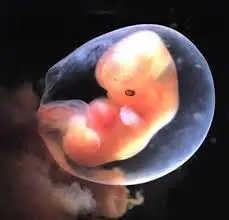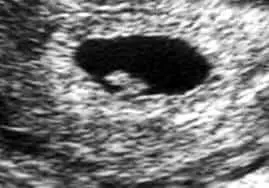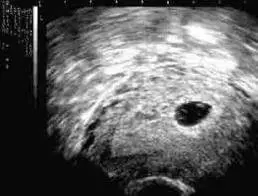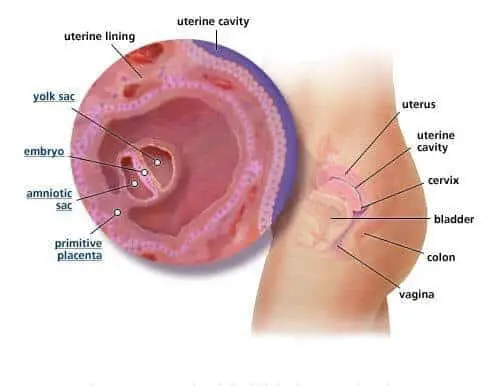It’ll be another busy week for baby, but then most of the first trimester is. Unfortunately, a busy week for baby means high energy use from you. This is why 6 weeks pregnant typically marks the point where fatigue begins to seriously bring you down– literally, like to a bed. In fact, in almost all pregnancies hormone levels are now sufficient to cause all sorts of fun pregnancy symptoms.

What’s up with baby at 6 weeks pregnant?
Remember how last week your baby was a tiny rice-sized dot with a line on it? Well, in a short week he or she has now grown to about the size of a skittle (4 to 6 mm from crown to rump) and resembles sort of a tiny tadpole– seriously, she/he even has gills and a tail. Arm and leg buds are beginning to form. The inner ear and larynx are almost complete, as well as the development of the placenta. Although, the placenta won’t take over the nutritional support from the gestational sack, or yolk we’ve mentioned in previous weeks, until around week ten.
Almost all of the vital organs are also now in process and the heart is beating! Both a heart beat and brain waves can be detected in most babies at 6 weeks pregnant. All of this crucial fetal development is why avoiding hazards to your baby’s health, such as alcohol, is important from day one of your pregnancy.
What’s going on with your body at 6 weeks pregnant?

As mentioned, 6 weeks pregnant can be deemed the official “symptoms” week for most, though some women have pregnancies which are basically symptom free. You may meet your new best friend morning sickness this week. Don’t be confused either, morning sickness doesn’t just visit in the morning. It can hit at any time. Your breasts may also become more tender and tingly. The areola, or area around the nipple, may begin to increase in size and darken. Your blood pressure may begin to drop. This can cause light-headedness and headaches. Other common complaints in early pregnancy, or 6 weeks pregnant symptoms, include scent sensitivity, taste changes, way too frequent potty breaks, bloating, nausea without vomiting, gas, constipation, difficultly sleeping (despite fatigue), and mild cramping.
Bloating may make you appear slightly pregnant at this point, but unless this is not your first pregnancy, chances are you have no “baby bump” yet. Most women look about the same as they did pre-pregnancy minus some possible boob-size increase at 6 weeks pregnant.
In the early weeks, some degree of spotting can also be completely normal. You can read more about bleeding in the first trimester here.
Should I see a prenatal care provider at 6 weeks pregnant?
Unfortunately, many care givers won’t see you before week 10 to 12 unless you are a high-risk case. This is because miscarriage is most common before this point. It is, however, a good idea to choose a prenatal care provider and set up your first appointment in advance. You might get lucky and be able to go in right away to confirm your pregnancy and get a general physical. Either way, make sure you are taking a prenatal with plenty of iron and folic acid as well as keeping a balanced diet.



